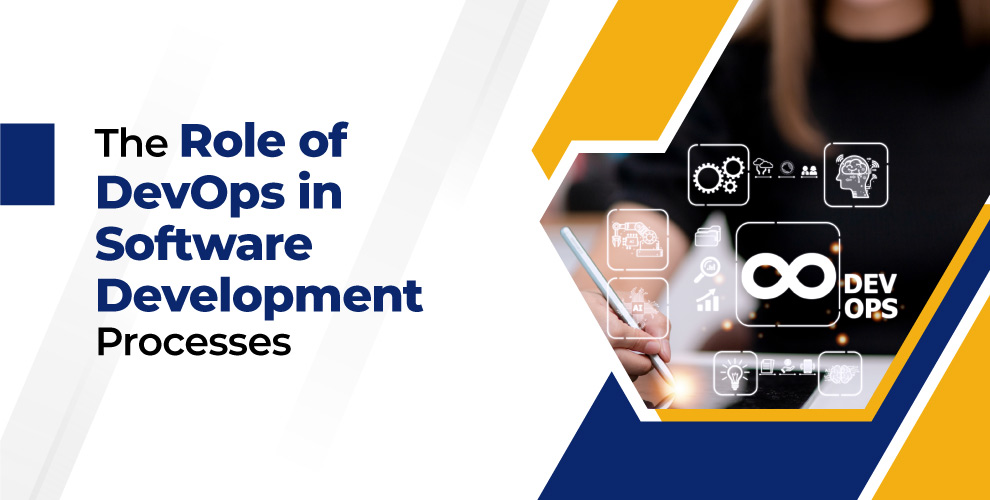What do you know about DevOps? The mix of development and operations with the set of practice which break down the traditional storage tower which enhances the collaboration and continuous improvement. If you’re pursuing the best B.Sc. Computer Science With Cognitive Systems College in Coimbatore, then you need to know the DevOps process and complete software development process. Nowadays, companies have separate DevOps teams to make IT operations faster and better.
A quick definition of DevOps:
Software development and IT operations are combined using a set of techniques called DevOps to create a workflow that is more effective and seamless. DevOps aims to improve software delivery teams’ collaboration, communication, and integration. DevOps users benefit from a quicker time to market, higher customer satisfaction, cheaper costs, and better performance. It involves many different procedures, technologies, cultures, and challenges that need to be comprehended and deployed according to the specific neds and circumstances based in teams and companies.
- When you use DevOps, you commit to continuous evaluation and monitoring using key performance indicators (KPIs) that describe the goals and results of the process.
- With the goal to produce better software more quickly and integrate the processes of software development (Dev) and IT operations (Ops), it relates to an approach and organizational culture transformation.
- DevOps strives to reduce the duration of the development lifecycle while regularly releasing updates, patches, and new features that are closely aligned with business goals in collaboration with your software development partner.
- The approach is to generate more effective and efficient solution by detecting and solving the problems in the development process.
Role of DevOps in Software Development Processes:
- DevOps brings together teams involved in software development, including operations, quality assurance, and developers, and promotes a collaborative culture. As a result, there are quicker feedback loops, improved communication, and eventually constant improvement for all project participants.Therfore, it promotes team alignment which boost productivity in teams and better outcomes.
- DevOps’s continuous integration and deployment (CI/CD) methodology promotes improved teamwork and communication and enables developers to make frequent, tiny code modifications that are automatically tested and deployed. As a result, end users will experience reduced downtime, faster release cycles, and more stable code. The code is always ready to run because the entire process is automated, giving it greater flexibility and responsiveness.
- The DevOps supports Infrastructure as code (IAC), which refers to handling and deploying infrastructure based on the same concepts as software code. This makes it possible for the infrastructure to be more transparent and controlled, encouraging teamwork and efficient management of challenging situations.
- DevOps promotes the use of automation to save a significant amount of time. Teams are able to concentrate on their most important responsibilities, like enhancing software quality, by using automated testing, deployment, and infrastructure management to reduce the amount of manual work. This increases productivity, lowers error rates, and frees up critical time for creativity.
- DevOps depends primarily on feedback and monitoring since they give real-time insight into the functionality of software. This guarantees that problems can be found and fixed right away, enabling ongoing input and advancement. Teams may make data-driven decisions through continuous monitoring which directs to higher software quality and an improved user experience.
- DevOps is essential to software development because it promotes teamwork, automation, continuous improvement, and quicker delivery cycles. Teams may create high-quality software solutions which satisfy user needs and business goals by implementing DevOps approach.
Benefits of implementing DevOps with Software Development Process:
- Early detection and correction become far simpler when operations and software development work together more effectively.
- The rates of failure are lower when using DevOps. Why? because people actively participate in the procedures. How? With the regular delivery of updates. With several deployments within a predetermined time frame, the rate of application failures can be managed.
- DevOps guarantees both seamless operations and dependability. When compared with organizations that do not employ DevOps, the implementation occurs many times faster.
- Delivery delays might occur when testers and developers have to wait a long time for resources. These gaps can be swiftly filled with agile development using a DevOps technique.
- Team members collaborate better and are more motivated to interact and work together when they use DevOps. You can so quickly accomplish your objective.
Conclusion: DevOps is an ever-evolving field that is impacted by new developments in software industry trends and technology. When you choose your career in the developer field, then enroll in the B Sc Computer Science Colleges in Coimbatore which provides the opportunities to learn DevOps process and with the hands-on experience before earning a degree you may get a clear idea. In order to stay up to date with these changes, people working in DevOps need to adapt their methods and abilities.


